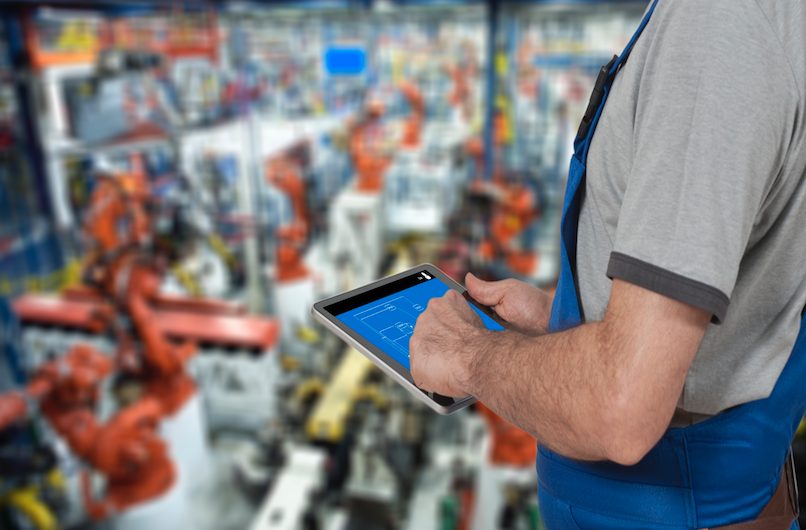
August 7, 2019
By: Marco Nielsen, VP of Managed Mobility Services
A seismic shift in personal computing has taken place over the last 10-15 years. Where dedicated desktop and laptop computers were once the most prominent, now we often carry handheld devices as primaries for both personal and business use. The management capabilities of the devices have also evolved rapidly and may even dictate how we manage all IT assets in the future.
In the beginning stages, the enterprise was concerned with device-focused management – changing operating systems, security settings and more with email as a primary method of communication. Yet, as we know today, this would all soon change.
Soon after, most mobile operating systems were designed to be managed with profiles and/or policies changing their operation as required. IT management evolved into stand-alone Mobile Device Management (MDM) solutions, which added a useful IT console and application management. All the solutions moved to the cloud to take full advantage of the connectivity gains that also evolved. As the mobile operating systems and business usage increased, the management model shifted again into Enterprise Mobility Management (EMM), with the addition of dedicated content, authentication and security management.
In recent years, the traditional legacy desktop operating systems have made major upgrades. Looking at how IT was easily managing thousands of mobile devices, management concepts have migrated from mobile operating systems to the desktop. For example, both Microsoft’s Windows 10 and Apple macOS X can be managed, similar to mobile policies, from a cloud management solution.
Together with the progress made with the desktop operating systems, and the proliferation of Internet of Things (IoT) devices in the marketplace, Enterprise Mobility Management (EMM) added support for multiple operating systems and use cases. Several analysts and vendors have named this new paradigm Unified Endpoint Management (UEM). UEM solutions can provide similar management tools and support, not just to mobile operating systems, but to desktops, laptops, tablets, IoT devices – and to almost any device endpoint known today. Mobile operating systems as well as Windows, macOS and Linux can now all be supported. This blurs the line of how various hardware is treated and how enterprises view devices from a management perspective.
The majority of legacy devices sold over the last ten years has shifted from desktops to laptops. With the rise of enterprise-grade tablets running mobile operating systems, laptops have also been forced to evolve. This has taken shape by way of new tablet form factors as well as 2-in-1 models, where a laptop screen can pivot and turn into a tablet. Recently, Microsoft has also pushed its own Windows-based tablet, Surface, utilizing Windows and touchscreen-friendly features to showcase new software capabilities, such as pen accessories and touchscreen-friendly Office and Windows operations. Other OEMs have also followed suit and created similar tablet/laptop hybrid form factors.
Samsung has taken a different approach and created a platform called “DeX”, which runs on the Android operating system on several different Samsung models, including phones and tablets. When the device is connected to a screen, keyboard and mouse, it can present itself with a familiar desktop-like screen interface. From here, terminal service clients such as Citrix and VMware can be utilized, and the user can access the same remote desktop experience as a Windows device. Android applications utilizing specific DeX APIs can also give a similar desktop experience to users. Given necessary connectivity, the DeX platform has the potential to infuse the laptop/tablet user experience into the same smartphone device you might already be carrying.
As the devices we carry around with us increase in functionality, power and memory – not to forget connectivity (high-speed 5G for example) – new choices will need to be made by business IT decisionmakers. Personal and business usage will continue to blur. Similarly, age-old decisions around BYOD – such as whether to leverage personal devices for company use and separate business data on the devices – may continue to come into play.
If there is a consolidation of operating systems long term, the management platforms may see a shift to cater to use-case management more so than operating system differences. It will become increasingly important to keep tabs on all of these developments and have a trusted source to guide you through integrating them successfully into your business.

Marco Nielsen
Marco Nielsen, VP of Managed Mobility at Stratix:
Marco has more than 20 years of cross-functional experience in systems architecture, operating systems, hardware and communications for large enterprises. Marco brings extensive experience, leadership and expertise to the development and execution of enterprise mobility initiatives for Stratix. He creates enterprise mobile strategies that align with clients’ objectives to assure that device deployments deliver business value.
Scott Ellyson, CEO of East West Manufacturing, brings decades of global manufacturing and supply chain leadership to the conversation. In this episode, he shares practical insights on scaling operations, navigating complexity, and building resilient manufacturing networks in an increasingly connected world.